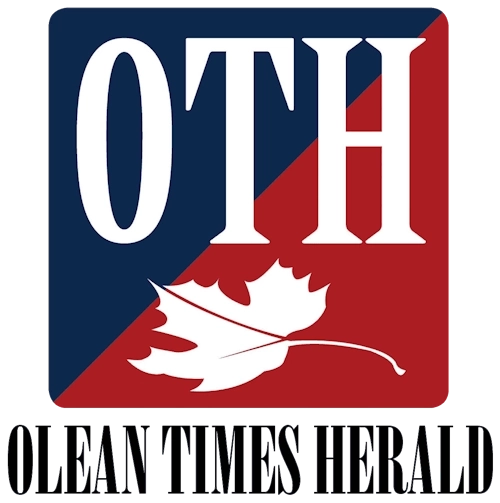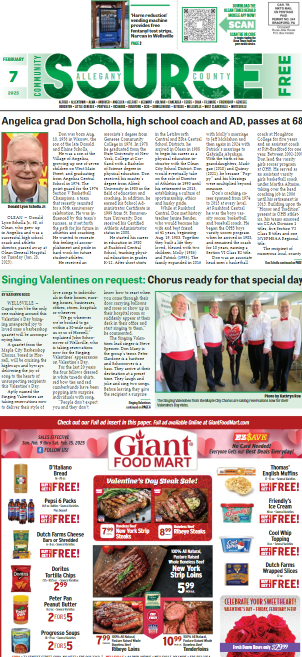Assemblyman Joe Sempolinski joined in the alarm sounded over a bill introduced by two New York City lawmakers who want to limit the number of cows on dairy farms.
Assembly member Linda B. Rosenthal, D-Manhattan, and state Sen. Jabri Brisport, D-Brooklyn, introduced a bill (A06928/S06530) that would ban dairy farms from expanding beyond 700 cows, a move they said would protect family dairy farms.
Sempolinski argues it would do just the opposite.
“This bill was drafted by two legislators from New York City who know nothing about dairy farming but are presuming to tell New York’s dairy farmers how to run their farms,” Sempolinski, R-Canisteo, said. “The majority of New York’s farms, more than 94%, are family owned. This bill has the potential to devastate family farms across New York.”
The proposed bill would bar the state Department of Environmental Conservation from issuing new Concentrated Animal Feeding Operation (CAFEO) permits for large-scale dairies. A CAFO permit is required for any dairy with more than 300 cows, but the large-scale permit is required for any dairy with more than 700 cows.
Rosenthal and Brisport, joined by advocates who also hailed from New York City, said that the bill would prevent new “factory farms” from opening, which they said are widely polluting and damaging to the communities around them.
“These factory farms wreak havoc on the environment, they are also pretty much always in direct impact marginalized communities, especially with the runoff, fumes, and the way they affect local waterways, and also the way they affect local economies,” Brisport said, as reported last week by the Watertown Daily Times.
Brisport believes large-scale companies extract value from the communities, while the scale of such operations is not sustainable.
“These big corporate farms house thousands of animals,” Rosenthal added. “They’re crammed into confined spaces, which has become a growing animal welfare concern. But the other side of it is the immense environmental damage these farms cause, in many cases, billion dollar companies are running these factory farms.”
Sempolinski joined other members of the Assembly and Senate who represent farming communities, as well as farming experts, in condemning the proposed legislation.
“With all due respect to my colleagues from New York City, this bill is dangerously misguided. It’s a breathtaking example of legislative overreach,” Sempolinski said. “It takes 60,000 cows per day to supply milk to the Great Lakes Cheese Plant in Franklinville. Family-run dairy farms in Allegany, Cattaraugus and Steuben counties are supplying that milk. They clearly have never visited any of our large, family owned farms Upstate.”
New York Farm Bureau said dairy is the single largest sector of New York’s agricultural economy, contributing $3.9 billion every year. New York is the fifth-largest dairy producing state in the nation.
Allyson Jones-Brimmer, vice president of regulatory and legislative affairs for the Northeast Dairy Producers Association, said that New York farms are overwhelmingly family owned, by families who have run farms for generations and are dedicated to responsible farming.
“Farm families have prided themselves for generations on a commitment to stewardship practices by caring for our animals, environment, and natural resources,” she said, as reported by the Watertown newspaper. “Our dedication to continuous improvement is accomplished by utilizing scientific facts based on ongoing research and education.”
Kirsten Workman, a nutrient and environmental sustainability specialist at the Cornell College of Agriculture and Life Science’s PRO-DAIRY program, said that the state’s CAFO program is one of the strongest in the nation, and it was created with environmental sustainability in mind.
“The CAFO permit is actually a clean water permit, so that entire program is really designed around protecting water quality and associated environmental impact as a result,” Workman said.
Workman noted that the New York CAFO permit program is far more strict than the federal CAFO requirements. Federal requirements mandate that states regulate farms with more than 700 cows, but New York starts regulating at 300, and while federal requirements only mandate permits be obtained by farms that discharge runoff into nearby waterways, New York requires a permit for every dairy regardless of where their runoff goes.
“Farmers are the Assemblyman
Sempolinski, saying that farms are the “cornerstone of our economy,” added that many of them have been run by the same family for generations — and they deserve a chance to grow and thrive.
“I oppose any legislation that threatens the economic vitality of this critical sector of our economy,” he said.







